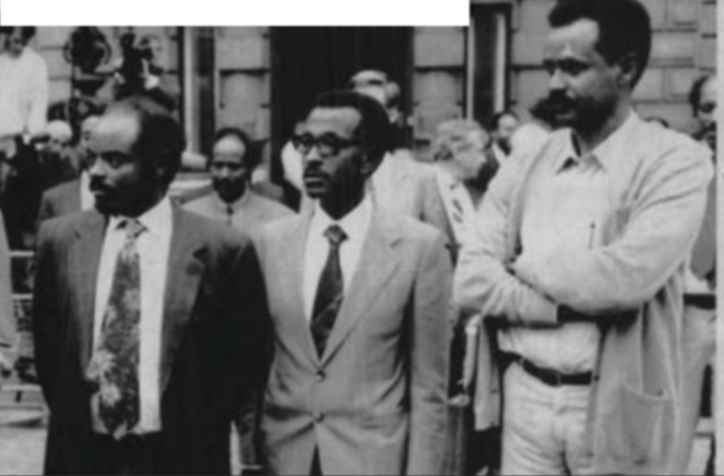Post
by Zmeselo » 29 Mar 2025, 03:39
This guy apparently served in Asmara—sadly, it seems he didn’t take the time to learn from Eritrea’s thoughtful and principled understanding of the region.
For educational purposes—since he seems to rely on sound bites of a bygone era, instead of actual history:
On Sudan, the region stood united against the National Islamic Front for its role in terrorism—including harboring Osama bin Laden and orchestrating the attempted assassination of President Mubarak in Addis Ababa. What he calls an “invasion” was, in fact, a regional response to contain the NIF’s destabilizing actions—and his own country was part of it.
In 1997, Ethiopian forces pushed deep into Sudan’s Blue Nile and Gadaref states, while backing and arming the SPLM/A. The difference? Ethiopia went on to illegally occupy Sudanese territory—Fashaga—for over two decades, until it was finally dislodged in 2020. Eritrea, by contrast, restored relations with Sudan following the Bashir–Turabi split, respected Sudan’s sovereignty, and made no territorial claims.
The Djibouti issue, was a manufactured conflict from the start. A glance at the WikiLeaks cables, especially the conversation between former Ethiopian Deputy Foreign Minister Tekeda Alemu and Donald Yamamoto, makes that clear. It was a border skirmish, nothing more.
After the 2010 Doha-mediated agreement, Eritrea and Djibouti both disengaged from the contested areas and maintained stability—even after the Qatari peacekeepers withdrew. The striking part, is that the Ethiopian government publicly condemned the peace deal—likely the first and only time a state has openly criticized a peaceful agreement between its neighboring countries.
With Yemen, it was a brief territorial dispute that triggered a short-lived clash. When the Permanent Court of Arbitration ruled in Yemen’s favor, Eritrea complied fully—no ifs, no buts. Eritrean forces withdrew well ahead of the Court’s 90-day deadline.
What’s often overlooked is that Ethiopia actually supported Eritrea’s position on the Hanish Islands. Under a military pact, it deployed an air defense system in Assab in 1996, which remained there until war broke out in 1998.
The border incidents with Djibouti and Yemen each lasted just two days. Not a single shot has been fired since. Yet for twenty years, Ethiopian elites kept invoking them—an absurd fixation.
I won’t delve into Ethiopia’s role in triggering the war with Eritrea. But let’s be clear: the main flashpoint, Badme, was awarded to Eritrea by an international court of arbitration. Under the Algiers Agreement, Ethiopia agreed that the ruling would be final and binding—and even appointed two of the five judges on the Boundary Commission. To claim that Eritrea “invaded” territory that legally belongs to it, is absurd. You cannot invade your own land—that is a simple fact. If there was an invader, it was Ethiopia, which instigated a senseless war and, when the dispute was legally resolved, refused to abide by the ruling for over almost two decades—to the detriment of both peoples and the wider region.
To sum up: Over the past 25 years, the contrast has been stark.
One is an expansionist state that flouts international law, seizes its neighbors’ land under the guise of fighting terrorism, stokes conflict between countries in the region, and continues to lay claim to foreign territory in the name of access to the sea. In fact, the Prime Minister recently told his Parliament that his country had gone to war with every neighbor. Ethiopia, has consistently acted as a Trojan horse for Western interests.
The other is a country that respects international rulings, even when the outcomes don’t favor it; that maintains an independent foreign policy anchored in building cooperative, stable relations; and that has stood by its neighbors in moments of real threat and instability.
The first is Ethiopia.
The second is Eritrea.
It is clear, who the destabilizer is.
